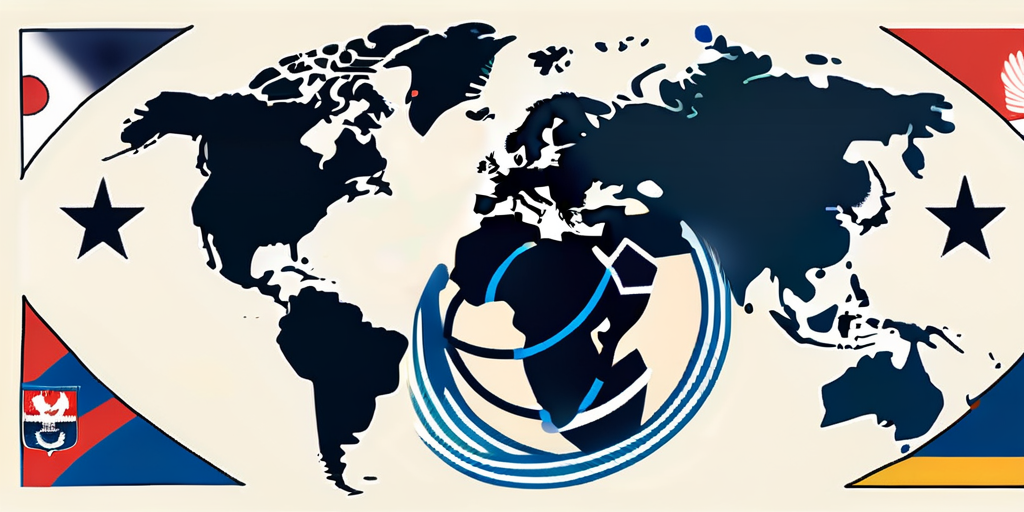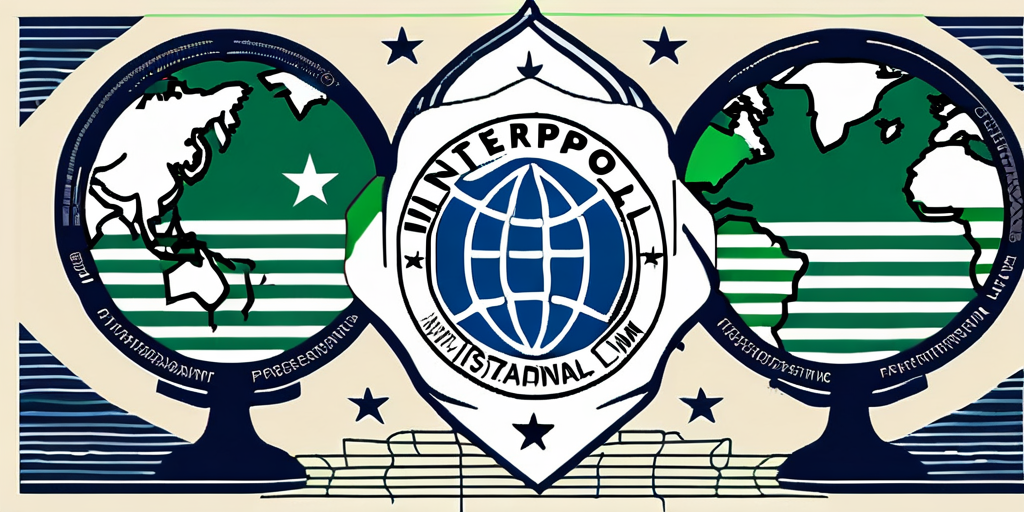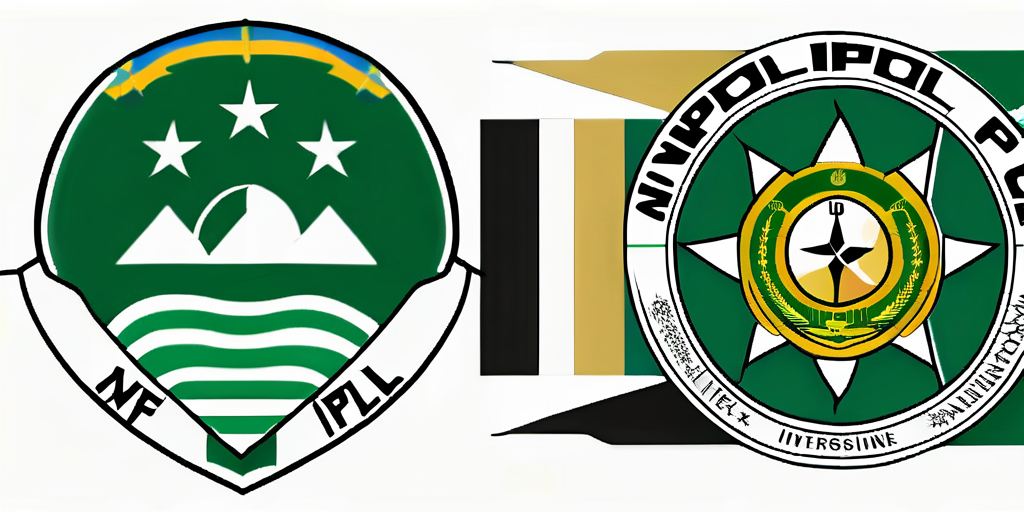Interpol, the International Criminal Police Organization, plays a crucial role in maintaining global law enforcement cooperation. With its mission to enable police organizations worldwide to work together to make the world a safer place, Interpol has been instrumental in combating transnational crimes, including terrorism, organized crime, and cybercrime. Pakistan’s involvement with Interpol has been notable, with significant contributions and active participation in various initiatives aimed at enhancing international security and promoting justice across borders.
Understanding Interpol’s Global Impact
Before delving into Pakistan’s role, it is essential to grasp the significance of Interpol’s mission and objectives. Established in 1923, Interpol focuses on police cooperation and providing a platform for its 194 member countries to share information, expertise, and best practices. Its key objectives include preventing and combating crime, promoting police cooperation, and facilitating the exchange of criminal information and intelligence.

Interpol’s Mission and Objectives
At its core, Interpol strives to foster international police cooperation and assistance, ensuring that police organizations can collaborate effectively on cross-border investigations and operations. This collaboration is vital to address the evolving challenges posed by global crime networks.
Interpol’s mission also extends to supporting member countries in capacity building and training programs to enhance their law enforcement capabilities. By providing access to specialized resources and training opportunities, Interpol empowers police forces worldwide to better combat transnational crime and terrorism.
The Structure of Interpol
Interpol’s structure comprises a General Assembly, an Executive Committee, and a General Secretariat. The General Assembly serves as the organization’s highest decision-making body, consisting of delegates from each member country. The Executive Committee, elected by the General Assembly, oversees the implementation of policies and decisions. The General Secretariat, based in Lyon, France, manages the day-to-day operations of Interpol, including coordinating activities, supporting member countries, and facilitating information exchange.
Furthermore, Interpol operates a network of regional offices and liaison offices worldwide to strengthen its presence and enhance cooperation at the regional and local levels. These offices play a crucial role in facilitating communication between member countries, coordinating joint operations, and providing on-the-ground support in various regions, thereby amplifying Interpol’s global reach and impact.
Pakistan’s Involvement with Interpol
Pakistan’s association with Interpol dates back several decades, highlighting its unwavering commitment to international cooperation in combating crime. Over the years, Pakistan has actively participated in Interpol’s efforts to strengthen global security and promote justice.

Interpol, short for the International Criminal Police Organization, serves as a vital platform for countries worldwide to collaborate on law enforcement matters. Pakistan’s membership in Interpol has allowed it to access a vast network of law enforcement agencies, enabling the country to work closely with other nations in addressing cross-border criminal activities.
Historical Overview of Pakistan’s Participation
Since joining Interpol in 1950, Pakistan has consistently contributed to Interpol’s operations, particularly in the fight against organized crime, drug trafficking, and terrorism. The country has played a crucial role in collaborative efforts, sharing intelligence, and coordinating operations with various member countries.
One significant aspect of Pakistan’s historical involvement with Interpol is its active role in supporting global efforts to combat human trafficking. Through information sharing and joint operations, Pakistan has worked with Interpol to dismantle human trafficking networks, rescue victims, and prosecute perpetrators, demonstrating a strong commitment to upholding human rights and combating modern-day slavery.
Current Role and Responsibilities of Pakistan in Interpol
Presently, Pakistan actively engages in Interpol’s activities through its national central bureau located in Islamabad. The Federal Investigation Agency (FIA) serves as Interpol’s operational arm in Pakistan, facilitating international cooperation in law enforcement. The FIA is responsible for coordinating with Interpol and other member countries, sharing information, participating in joint operations, and apprehending criminals involved in transnational crimes.
Moreover, Pakistan’s collaboration with Interpol extends beyond traditional crime-fighting efforts. The country actively participates in Interpol’s initiatives to combat cybercrime, providing expertise and resources to address the growing threat of online criminal activities. Through training programs, workshops, and information sharing, Pakistan contributes to enhancing global cybersecurity and safeguarding digital infrastructure against cyber threats.
Key Contributions of Pakistan to Interpol
Pakistan’s role in Interpol goes beyond mere participation. The country has made significant contributions in combating international crime and strengthening Interpol’s data exchange mechanisms.
Efforts in Combating International Crime
Pakistan has actively collaborated with Interpol and other member countries in combatting various forms of transnational crime, including drug trafficking, human trafficking, and smuggling. The country’s law enforcement agencies, particularly the FIA, have conducted successful joint operations, leading to the arrest and extradition of criminals involved in international criminal activities.
Pakistan’s Role in Interpol’s Data Exchange
Interpol relies on the efficient exchange of criminal information and intelligence among member countries. Pakistan has taken significant steps in enhancing its data exchange capabilities, enabling seamless sharing of information with Interpol and other law enforcement agencies. This cooperation ensures swift identification and tracking of criminals, aiding international investigations and promoting global security.
Challenges and Opportunities for Pakistan in Interpol
While Pakistan’s contributions to Interpol have been commendable, there are challenges that the country must navigate to fully harness its potential within the organization. Additionally, there are ample opportunities for Pakistan to strengthen its role and emerge as a leader in international law enforcement cooperation.
Navigating Political and Legal Challenges
In a complex geopolitical landscape, political dynamics and legal frameworks can pose challenges to effective collaboration within Interpol. Pakistan needs to align its legal systems and domestic policies with international standards, ensuring seamless cooperation and information sharing in combating transnational crimes.
Opportunities for Enhanced Cooperation and Leadership
Pakistan has the potential to assume a more prominent role within Interpol by actively engaging in initiatives aimed at enhancing regional and international cooperation. By leveraging its expertise in combating terrorism and organized crime, Pakistan can contribute to the development of strategies and frameworks that address evolving global security threats.
The Future of Pakistan’s Role in Interpol
Looking ahead, Pakistan has a significant role to play in shaping Interpol’s future and addressing emerging challenges in the global law enforcement landscape.

Potential Areas for Further Involvement
Pakistan can explore opportunities to further engage with Interpol in areas such as capacity building, training, and technology sharing. By investing in the development of its law enforcement agencies, Pakistan can enhance its effectiveness in combating transnational crimes and contribute to strengthening Interpol’s capabilities.
The Impact of Technological Advancements on Pakistan’s Role
The rapid advancement of technology poses both opportunities and challenges for Pakistan’s involvement with Interpol. Embracing and leveraging technologies such as artificial intelligence, data analytics, and cybersecurity will be crucial for Pakistan to stay ahead in the global fight against crime.
In conclusion, Pakistan’s active role in Interpol demonstrates its commitment to global law enforcement cooperation. By actively participating in Interpol’s activities, contributing to combatting international crime, and addressing challenges, Pakistan can continue to make a significant impact in promoting global security and justice.
